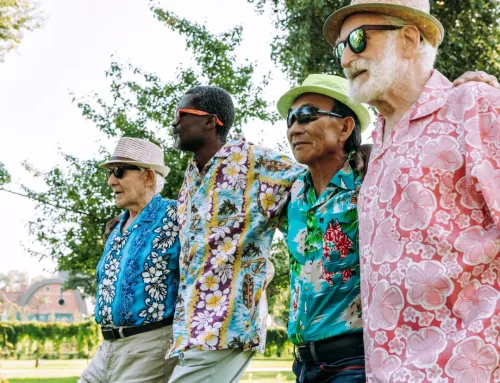Facts & Fictions about Hearing Loss
Although some 48 million Americans have some form of hearing loss, there remain a wide variety of fictions in the public mind. If you ask someone what they think about hearing loss, you are likely to hear a blend of facts, outdated realities, and full-blown myths. How can we set the record straight? The following are some of the important facts and widely held fictions about hearing loss. The next time you are discussing hearing loss with your friends or loved ones, you can recall these truths to set the record straight. Not only is it harmful for public health to rely on fictions about hearing loss, but some people can be held back from getting the treatment they need. If you know someone who believes one of these fictions or ignores one of these facts, don’t hesitate to start a conversation about the reality of hearing loss.
Fact: Hearing loss can happen to anyone.
When some people think of hearing loss, they imagine seniors who have been exposed to noise for a lifetime. Although this group is among the most likely to experience hearing loss, they are not alone. Younger people are developing hearing loss at higher rates than in the past, and experts are concerned that technological advances, such as streaming media, might be contributing to this higher incidence of loss.
Fiction: Hearing aids are not very effective.
Although older models of hearing aids did have issues with background noise and whistling feedback, most of these technical issues have been resolved in the latest models. The technology behind Digital Signal Processors (DSPs) has improved dramatically in recent years, making it possible to analyze an audio signal, identify abnormalities or weaknesses, and transform that audio into something that is easy to understand. As research and development in hearing assistance continues to improve, you can trust that they are ever-more effective at helping you communicate.
Fact: Noise is not the only cause of hearing loss.
Indeed, noise-induced hearing loss is one of the most common forms, but it is not alone. The natural process of aging causes hearing loss for many seniors, otherwise known as presbycusis, and rarer forms of hearing loss include exposure to harmful chemicals or prescriptions, head injuries, illnesses, and congenital loss at birth. Some people think that since they do not work in a loud factory they are not likely to incur hearing loss, but the causes are actually quite varied.
Fiction: I can get by without treatment.
Many people with hearing loss believe this powerful fiction. They think that they are doing just fine without getting treatment. Some of them make excuses for their inability to communicate, including blaming others for not speaking loudly or clearly enough. They might think they can ignore big parts of conversations without suffering any consequences. They might even imagine that they can read lips well enough to make out what others are saying without getting treatment for their needs. Despite these ways of satisficing, hearing loss can start off a ripple effect of other problems for your health and wellbeing. Untreated hearing loss is associated with conditions ranging from cardiovascular disease and diabetes to depression, social isolation, and dementia. With these correlations in mind, the fiction that you are getting by fine without treatment is a dangerous one.
Fact: Treatment is available.
Although these fictions about hearing loss can threaten our health, wellbeing, and relationships, the fact is that treatment is available. Those who get treatment for hearing loss have better outcomes in many dimensions, so it is important not to delay the process. Once hearing loss occurs, the sooner you get treatment the better, so regular hearing tests are an important piece of the puzzle. If you haven’t had a hearing test lately, why not make an appointment today? If your hearing is in good shape, then we will have a baseline measurement for future tests. If, however, you have untreated hearing loss, we can get you started on the path toward assistance. Hearing aids have developed remarkably, and you might be surprised how pleased you are with the treatment you receive, not only for your hearing ability but also for your relationships and general wellbeing.
Contact American Hearing + Audiology for an appointment at one of our top-rated hearing centers.






